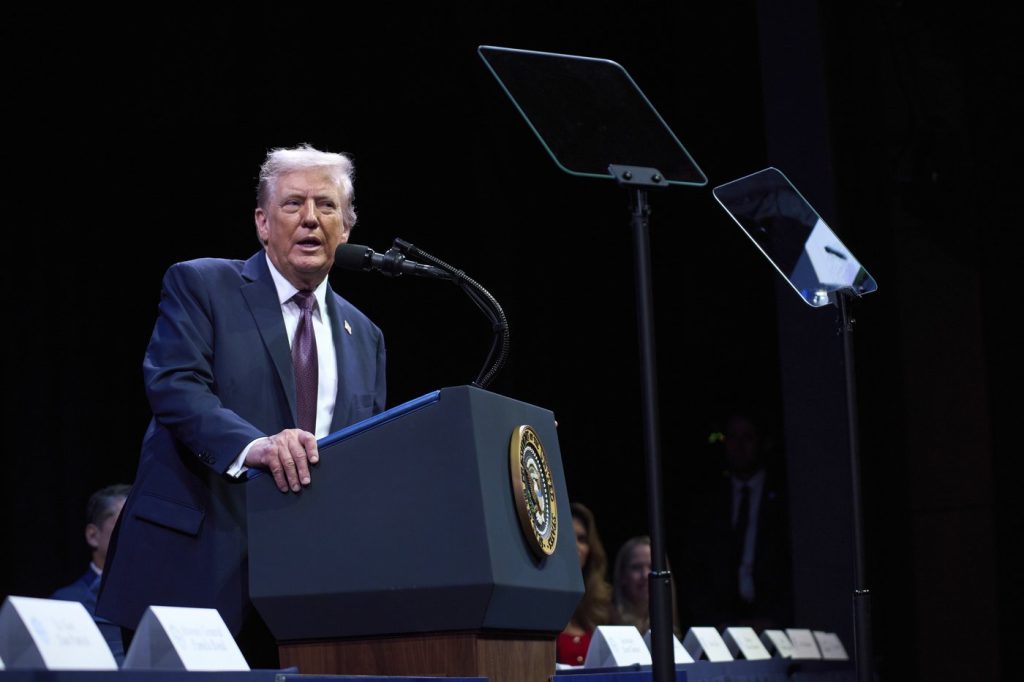With the Taliban's decision to bar women from attending college in Afghanistan, Bahara Saghari, a 21-year-old woman, aimed to pursue higher education in the United States. After dedicating up to eight hours a day to learning English over several years, she received an admission offer to study business administration at a private liberal arts college in Illinois. However, her plans were disrupted once again due to President Donald Trump’s travel ban.
Saghari expressed her frustrations, stating, "You think that finally you are going to your dream, and then something came up and like, everything's just gone." This sentiment resonates with thousands of international students affected by the Trump administration's travel restrictions, impacting those who have invested time and money to study in the U.S. Many prospective students did not appear on American campuses despite having admission offers, primarily due to delays in visa applications instigated by the administration. This included additional vetting procedures that slowed down the issuance of F-1 and J-1 visas.
Between May and September of the previous year, the State Department only issued over 5,700 of these student visas to individuals from countries impacted by the travel ban. Most of the approved visas went to citizens of Iran and Myanmar. The travel ban currently affects citizens from 12 countries across various regions, including Africa, Asia, the Middle East, and the Caribbean, significantly restricting their ability to obtain new visas. Certain exemptions apply, such as for individuals holding green cards, dual citizens, and some athletic participants.
Pouya Karami, a 17-year-old student from Shiraz, Iran, had focused solely on U.S. colleges for their superior research opportunities. He intended to study polymer chemistry this fall at Pittsburg State University in Kansas; however, he has postponed his admission due to the travel restrictions. Karami remains hopeful, preparing for his embassy interview and reaching out to U.S. politicians to push for a reconsideration of the travel ban's implications on students.
Trump cited high visa overstay rates and national security concerns as justifications for the travel ban. He referred to the visa screening processes of some countries as "deficient" and indicated that the restrictions would remain in force until these issues are addressed.
In Myanmar, a family prioritized their 18-year-old son’s education, saving diligently to support his dreams of studying in the U.S. When he received an acceptance letter from the University of South Florida, the family celebrated; however, their hopes were dashed when they learned of the travel ban. This student, identified only as Gu Gu, mentioned that many of his peers had been conscripted into military service or had joined resistance groups amid ongoing civil unrest following a military coup in 2021. Gu Gu expressed deep disappointment, stating, "I was all in for U.S., so this kind of breaks my heart.”
After postponing her visa interview in Pakistan, Saghari ultimately canceled her application. Knox College denied her request to defer admission, prompting her to apply to universities in Europe. However, she faced additional challenges, including the requirement to retake an English proficiency test due to the expiration of her previous score, which had already been difficult to obtain in Afghanistan's volatile political climate. She was eventually accepted to a Polish university but needed to pay tuition upfront as her application underwent validation of her high school credentials.
Amir, a 28-year-old Iranian researcher, was unable to travel to the U.S. for a visiting scholar position. The missed opportunity at the University of Pennsylvania weighed heavily on him, pushing him to seek research prospects in Europe, which would involve learning a new language and a longer application process. Despite his inclination toward U.S. opportunities, Amir feels increasingly glum about the prospects of changing U.S. foreign policy affecting international students.
The experiences of these students highlight a growing frustration and a sense of disillusionment as they face international educational barriers imposed by travel restrictions, leaving many to reconsider their academic futures outside the United States.










